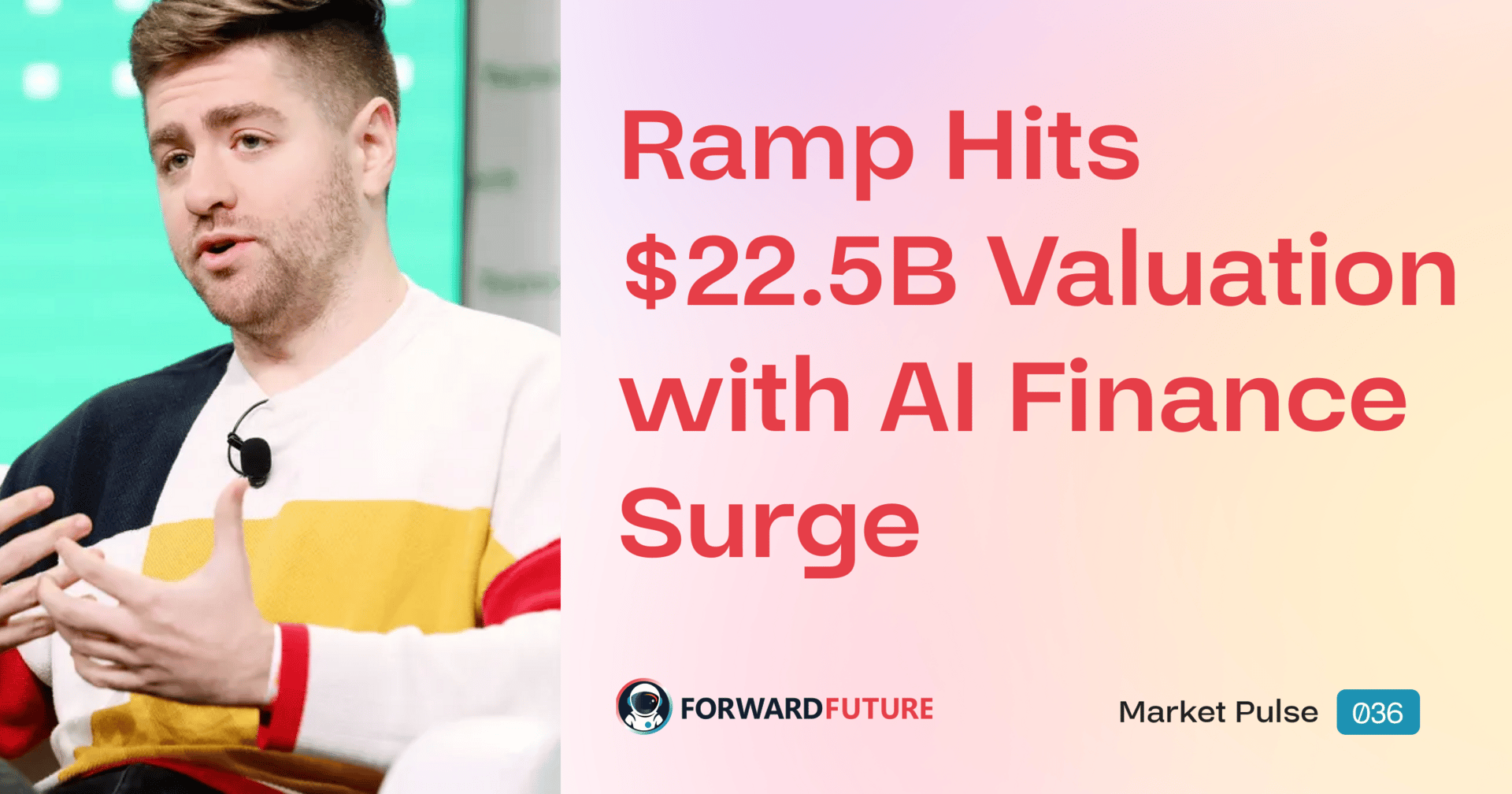
Estimated Read Time: 4 minutes
The numbers tell a story that would make even seasoned Silicon Valley veterans pause. In just 45 days, corporate spend management platform Ramp catapulted its valuation from $16 billion to $22.5 billion—a staggering 41% jump that's sending ripples through both fintech and AI circles.
But here's what makes this more than just another funding headline: Ramp isn't just riding the AI wave. They're actively reshaping what corporate finance looks like when software can think, reason, and act autonomously.
The Agent Revolution Hits Finance
While most companies are still figuring out how to implement basic AI chatbots, Ramp has quietly launched something far more ambitious, their first AI agent capable of reasoning through complex financial policies using advanced models from OpenAI and Anthropic. This isn't your typical rules-based automation. We're talking about software that can navigate nuanced expense scenarios, understand context, and make judgment calls that previously required human oversight.
The early results? The AI agent is detecting 15 times more policy violations than traditional systems. That's not incremental improvement, that's a fundamental shift in how financial compliance operates at scale.
"We're teaching software to think like people," CEO Eric Glyman told investors, framing the moment as finance hitting a structural inflection point. It's a bold claim, but one that's apparently resonating with the market. The $500 million funding round, which brings Ramp's total equity funding to approximately $1.9 billion, suggests investors see this as more than corporate speak.
Cash Flow Meets Cutting Edge
While many AI startups are burning through cash in pursuit of the next breakthrough, Ramp has achieved something increasingly rare: they're cash-flow positive with $700 million in annual recurring revenue as of March 2025.
This combination of financial discipline and technological innovation is exactly what investors are hunting for in 2025. The era of "growth at all costs" has given way to a more mature approach where AI capabilities must translate into real business value, not just impressive demos.
And Ramp's expansion plans suggest they're just getting started. Over the coming year, the company aims to roll out additional AI agents targeting financial planning and analysis (FP&A), travel booking, and bookkeeping functions. Each represents a massive market opportunity where manual processes still dominate.
The Competitive Landscape Shifts
The timing couldn't be more strategic. While established players like American Express, SAP, and Brex have deeper pockets and longer relationships, they're also burdened by legacy systems and traditional approaches to financial software. Ramp's AI-first architecture gives them the agility to implement features that would take incumbent players years to develop and deploy.
Consider the market opportunity: Ramp currently serves only a small fraction of eligible US businesses, leaving an enormous runway for growth, especially as companies increasingly prioritize tools that can reduce manual work and improve financial oversight. The pandemic accelerated digital transformation across corporate finance, but we're now entering a second wave where AI automation becomes the differentiator.
What This Means for CFOs
The broader implications extend well beyond Ramp's balance sheet. We're witnessing the emergence of what industry insiders are calling "agentic finance"—a paradigm where software doesn't just process transactions but actively manages financial workflows with minimal human intervention.
For CFOs, this represents both an opportunity and a challenge. The opportunity lies in dramatically reducing the time spent on routine compliance, approval workflows, and expense management. The challenge? Trusting autonomous systems with financial decisions and ensuring proper oversight of AI-driven processes.
The companies that figure this out first will have a significant competitive advantage. Those that don't risk being left behind as their competitors leverage AI to operate more efficiently and make faster financial decisions.
The Bigger Picture
Ramp's trajectory reflects a broader shift in fintech investment patterns. After a challenging period where AI promises often exceeded delivery, investors are now gravitating toward companies that can demonstrate both technological innovation and solid business metrics. The combination of advanced AI capabilities with cash-flow positive operations represents the new gold standard.
As AI agents become more sophisticated and reliable, we'll likely see similar transformations across other areas of corporate operations. For Ramp, the $22.5 billion valuation isn't just validation of their current success, it's a bet on their ability to define the future of corporate finance.
As one investor noted, we're moving from an era where software helps people make financial decisions to one where software makes those decisions directly.
Key Insights:
Ramp's valuation jumped 41% in 45 days, reaching $22.5B
The company's AI agent detects 15x more policy violations than traditional systems
With $700M ARR and cash-flow positive status, Ramp combines AI innovation with financial discipline
Only 1.5% of eligible US businesses currently use Ramp, indicating massive growth potential

Nick Wentz
I've spent the last decade+ building and scaling technology companies—sometimes as a founder, other times leading marketing. These days, I advise early-stage startups and mentor aspiring founders. But my main focus is Forward Future, where we’re on a mission to make AI work for every human.
👉 Connect with me on LinkedIn


